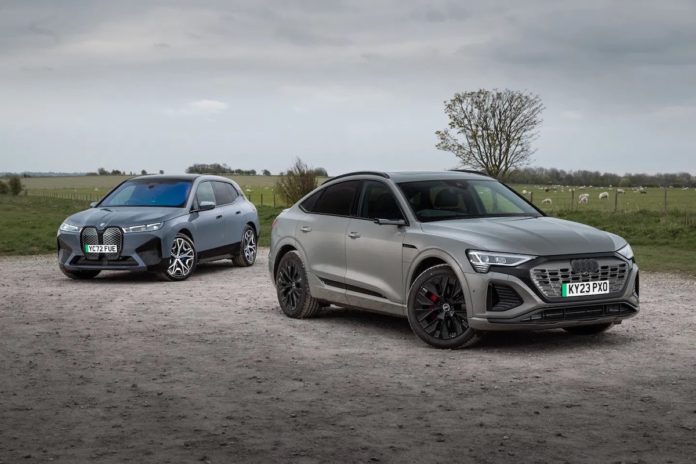When comparing the electric vehicle (EV) offerings from two of Germany’s automotive titans, BMW and Audi, several key aspects come into play. Both brands have invested heavily in electric mobility, but their approaches and the outcomes offer distinct experiences and technologies. In the quest to determine who makes the best electric cars, we examine their performance, technology, design, and overall consumer value.
Performance and Efficiency
BMW has been at the forefront of electric car technology with its “i” series. The BMW i3, introduced in 2013, was one of the first pure electric vehicles on the market, noted for its lightweight carbon fiber and aluminum construction. Following the i3, the BMW iX and i4 have set high standards in performance. The iX, BMW’s flagship SUV, offers an impressive range and power, with advanced versions boasting nearly 500 horsepower and a 0-60 mph time of just under 5 seconds. Similarly, the i4, a sleek sedan, combines the sportiness BMW is famed for with electric efficiency, providing a compelling alternative to gasoline-powered vehicles.
Audi’s response to the electric surge is embodied in its e-tron series. The original Audi e-tron SUV was the brand’s first significant step into electrification, and it has since expanded to include the e-tron GT and Q4 e-tron. The e-tron GT, a direct competitor to the Tesla Model S, highlights Audi’s focus on performance, featuring a robust 637 horsepower in its RS model, which allows it to sprint from 0-60 mph in just over 3 seconds. Moreover, Audi’s electric vehicles offer adaptive air suspension and all-wheel drive, enhancing both comfort and capability.
Technology and Innovation
Technology is another battleground. BMW’s iDrive system, coupled with its latest Operating System 8, offers a highly intuitive interface, rich in features like gesture control and extensive customization options. BMW’s focus on sustainable mobility is further exemplified by its use of recyclable materials and the incorporation of natural elements inside the cabin, which not only reduce environmental impact but also enhance passenger comfort.
Audi counters with its MMI system, which blends functionality with crisp graphics and user-friendly interfaces. The Virtual Cockpit in Audi EVs is a standout, offering drivers a customizable digital dashboard that provides detailed vehicle metrics and navigation data directly in the line of sight. Audi also integrates advanced driver-assistance systems, which pave the way towards autonomous driving.
Design and Comfort
Design-wise, both manufacturers adhere to their core aesthetics while embracing the future. BMW’s electric models often feature futuristic designs with bold accents such as the notable kidney grille on the iX and i4. These designs signify BMW’s commitment to innovation while maintaining its distinctive brand identity.
Audi maintains its sophisticated and streamlined look with the e-tron series, focusing on aerodynamics and elegant interiors that are synonymous with luxury. The build quality remains exceptional, with attention to detail that reassures users of its premium positioning.
Consumer Value and Market Reception
In terms of market reception, both BMW and Audi have received accolades for their electric vehicles, but they cater to slightly different segments of the market. BMW’s offerings are often seen as more dynamic and sporty, which appeals to driving enthusiasts who are hesitant to give up performance for sustainability. On the other hand, Audi provides a more traditional luxury experience, emphasizing comfort, quietness, and top-tier technology, which appeals to current Audi fans and luxury car buyers looking for a seamless transition to electric vehicles.
Deciding who makes the best electric cars between BMW and Audi ultimately depends on what consumers value most in an EV. BMW might edge out for those who prioritize groundbreaking technology and sporty dynamics, while Audi could be the preferred choice for those who value luxury and a more comprehensive digital driving experience. Both brands continue to evolve, suggesting that the competition will only intensify, benefitting consumers with even better electric vehicles in the future.

